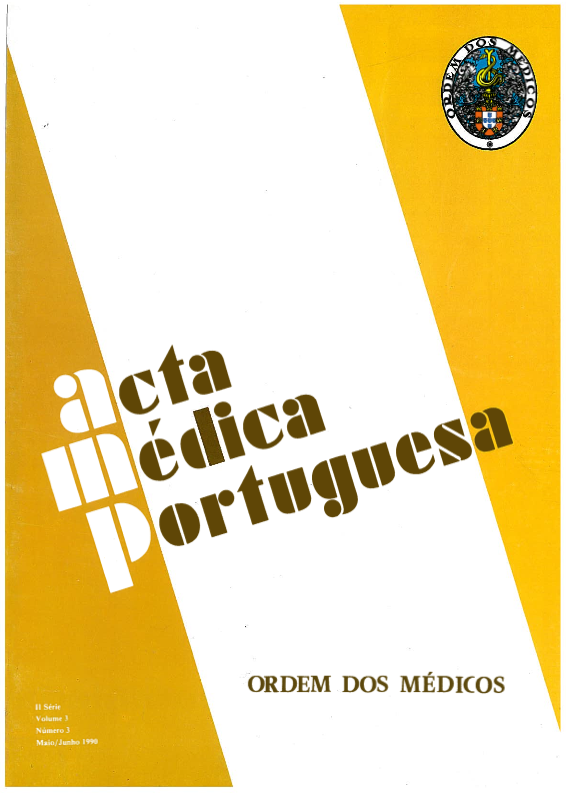Evolution of clinical teaching at the Medical School of Lisbon (2).
DOI:
https://doi.org/10.20344/amp.4557Abstract
Clinical teaching at Lisbon's Faculty of Medicine is analyzed in its two phases: 1. A period of stability and continuity of the institution (from 1911 to 1947) characterized by good rules in the selection of teachers: an impressive group of personalities (F. Gentil, Pulido Valente, Reynaldo dos Santos, Egas Moniz, A. Flores, Sobral Cid, Lopo de Carvalho, Gama Pinto, etc). At the same period a true University Hospital (of Santa Marta) provided clinical investigation (cerebral angiography and leucotomy, aortography and arteriography of the limbs, angiopneumography, endarterectomy) and the creation of new specialities (neurosurgery, vascular surgery, pneumology) (Act. Méd. Port. 1990; 2: 109-114). 2. A period of instability due to a deleterious political intervention (from 1947 to the present day) responsible for the destruction of the structure and concept of a new teaching hospital (Hospital de Santa Maria). As a result of the socio-political situation conflicting laws and vicious rules lead to an excess of non-selected teachers and an alarming increase of students, patients and medical doctors A change from the present situation and a new concept of clinical teaching must be imagined.Downloads
Downloads
How to Cite
Issue
Section
License
All the articles published in the AMP are open access and comply with the requirements of funding agencies or academic institutions. The AMP is governed by the terms of the Creative Commons ‘Attribution – Non-Commercial Use - (CC-BY-NC)’ license, regarding the use by third parties.
It is the author’s responsibility to obtain approval for the reproduction of figures, tables, etc. from other publications.
Upon acceptance of an article for publication, the authors will be asked to complete the ICMJE “Copyright Liability and Copyright Sharing Statement “(http://www.actamedicaportuguesa.com/info/AMP-NormasPublicacao.pdf) and the “Declaration of Potential Conflicts of Interest” (http:// www.icmje.org/conflicts-of-interest). An e-mail will be sent to the corresponding author to acknowledge receipt of the manuscript.
After publication, the authors are authorised to make their articles available in repositories of their institutions of origin, as long as they always mention where they were published and according to the Creative Commons license.









